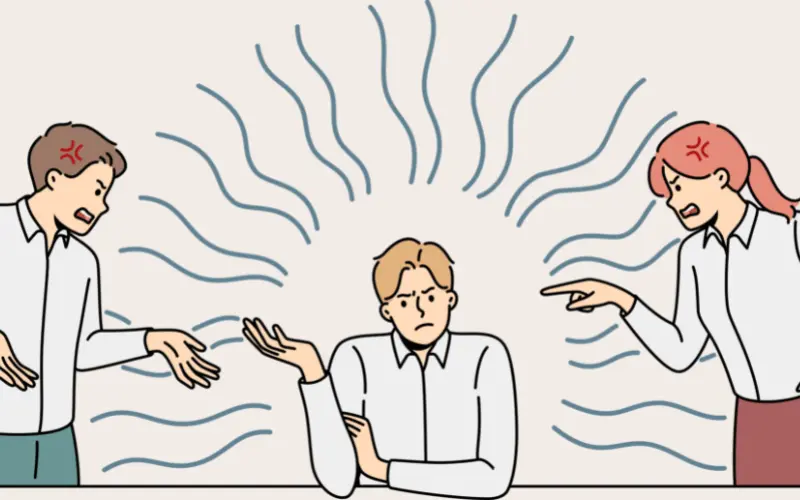How to stop being a people pleaser? People-pleasing isn’t only an act of generosity, but all about not being able to maintain personal boundaries within relationships or with people you know. People pleasers usually press their own needs for others, which in the long run, can ruin their inner selves. Today, here, we are going to talk about what is people-pleasing and how it can negatively affect your mental health.
Helping others, being kind to others is incredible. However, when you always put others first and yourself secondary, it can take a toll on your mental health in the long run. How to stop being a people pleaser– to understand this we need to first understand what it is all about, its signs, and how to stop it. Let’s get started!
Many of you might confuse people-pleasing with being very kind and compassionate to others. However, this unrealistic need to be there for everyone can make you sick if you are a people pleaser.
What is People-pleasing?
Here are some of the ways you can define being a people pleaser-
- Lack of self-care is the main factor in people-pleasing. Don’t care for your own needs is the red flag.
- The stress of striving to satisfy everyone’s needs, likes, and dislikes can make you ill physically as well as psychologically.
- A people-pleasure feels extreme pressure of fulfilling other needs and desires. It can make them feel sick to the stomach.
- In reality, you don’t want to do certain things, but despite that, you always say “yes” to everything and anything to avoid any sort of conflict with others.
These are some of the most direct ways to define people-pleasing. Now, let’s dig deeper and understand some of the most common signs of people-pleasing.
Also Read: How Can Chronic Stress Lead To Depression?
What Are The Signs Of People-Pleasing?
Some of the most common signs of people-pleasing are here as follows-
Always saying sorry, even when it’s not your fault-
Yes, you have heard it right! People pleasers frequently hold themselves accountable for others’ emotional reactions and behaviors. You might get fearful thinking that you might offend someone if you won’t say sorry even if it’s not your fault. Of course, it’s entirely fine and humane of you to apologize if you’ve offended someone. However, apologizing for matters in which you have not done anything wrong or you have no control is not appropriate. It can make you feel low in confidence or also reduce your self-esteem.
Often see your worth from others lens –
Validation from others can be one of the biggest triggers for degrading mental health. People-pleasers often seek the approval of others. They can go to any extent for validation from others. A people pleaser’s self-assurance increases and falls depending on how others view them. In a nutshell, they perceive their worth from other’s lenses, which is quite dreadful and detrimental at the same time.
Find it difficult to say “No”-
If you are a people-pleaser, then you might find it tough to say no when others ask you for something or some favors or anything. Many people-pleasers can also say yes in the beginning to avoid any discomfort but later say no to get out of a commitment. In actuality, this can make things even worse. Often, people find it rude when someone commits something but later backs off. It’s like giving someone false hope. It’s always better to politely say no rather than giving any hope at all if you cannot help someone out.
Being hard on yourselves for others-
As we always spoke, people-pleasing is not at all about being kind or compassionate. It’s way more than that. It’s somewhat psychological conditioning of the mind, which we will talk about later in this blog. People struggling with people-pleasing also adjust their attitude and personality to fit into the molds and the needs of the individual or group. People pleasers can go to any length to avoid disagreement and entirely transform themselves into something different from their real lives. That is quite hazardous and can lead someone too far from themselves.
Considering everything, people-pleasing can impact your mental health in a big way. It puts unnecessary stress and pressure on your well-being, increasing chances of anxiety, depression, and brain fog. That in a prolonged amount of time, can be hazardous for your psychological being. One should not be a people-pleaser!
Next up is the solution for people-pleasing.
How To Stop Being A People-pleaser?
How to stop being a people pleaser– it may seem like a very straightforward question, but in reality, it’s not! Well, one has to start from somewhere, as if people-pleasing won’t get noticed and stopped, in the future, it can lead you to face various consequences.
It can make you someone else. Just think for a minute! How would your life be if you continued living like someone else and not yourself?
Initially, it can be really hard to notice when you are people-pleasing. Also, it can be hard to differentiate between being generous and a people-pleaser. Well, you can acknowledge it by noticing your people-pleasing habits and patterns. You can look for signs, such as when you say yes and no to things. Whether you think about your self-care or not. What about your likes and dislikes? Questioning is key! Becoming conscious enough to spot your signs of people-pleasing will slowly turn out things better for you and will help to not be someone else.
Start to maintain boundaries, give importance to self-care, set some limitations, and spend your time with genuine people, as they accept you for who you are and don’t take advantage of you. Above all, seeking professional help can be game changer for you. A professional can assist you reducing your people-pleasing patterns.
These are some of the ways on how to stop being a people-pleaser.
We hope you liked this blog about how to stop being a people pleaser. Feel free to share your suggestions and thoughts on the discussed topic in the comment sections below. Would love to hear from you! HearthFeelings keeps sharing new resources, blogs, tips, and strategies for mental health awareness. Stay tuned for lots more ahead!











